
As a young male athlete, achieving peak performance requires more than just rigorous training and dedication. Proper nutrition plays a crucial role in supporting athletic endeavors, and vitamins are essential nutrients that can significantly impact performance, recovery, and overall health. In this article, we’ll explore the best vitamins for young male athletes, highlighting their roles in enhancing physical and mental well-being.
Introduction
Young male athletes undergo intense physical activity, placing high demands on their bodies. To perform at their best and recover effectively, they need adequate nutrition, including essential vitamins. These micronutrients play various roles in the body, from supporting immune function to facilitating energy production and muscle repair.
1. Vitamin A: Enhancing Vision and Immunity for Young Male Athletes
As young male athletes striving for peak performance, we understand the significance of incorporating the best vitamins into our diets to support our athletic endeavors. Among these, Vitamin A stands out for its crucial role in enhancing both vision and immunity, two essential factors for athletic success. Let’s explore how Vitamin A contributes to maintaining eye health and boosting immune function, ensuring that we can perform at our best on and off the field.
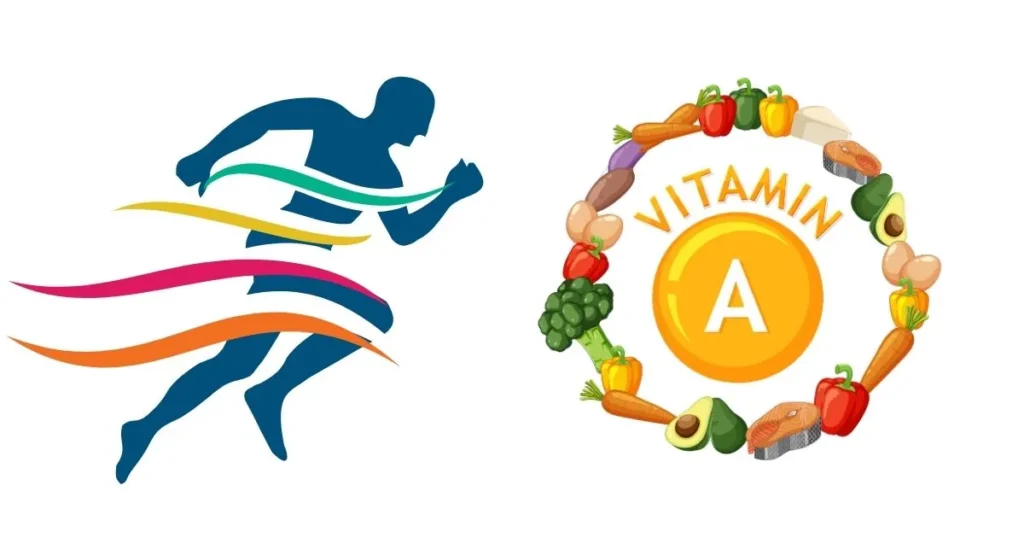
Read More: Natural Remedies For Memory Loss in Menopause
a. Role of Vitamin A in Maintaining Eye Health:
- Visual Acuity: Our vision is our most valuable asset as athletes, influencing our ability to track moving objects, judge distances, and react quickly to changes on the field or court. Vitamin A plays a fundamental role in maintaining the health of our eyes, particularly the retina, where it is involved in the synthesis of rhodopsin, a pigment crucial for low-light vision. By ensuring adequate Vitamin A intake, we can preserve visual acuity and enhance our performance in various sporting activities, especially those conducted in dim or low-light conditions.
- Eye Protection: Exposure to harsh environmental factors such as UV radiation and air pollution can increase the risk of eye damage and vision impairment. Vitamin A acts as an antioxidant, protecting the eyes from oxidative stress and reducing the risk of age-related macular degeneration, cataracts, and other eye conditions. By supporting eye health, Vitamin A enables us to maintain clear, sharp vision, giving us a competitive edge on the field or court.
b. Boosting Immune Function with Vitamin A-rich foods:
- Immune Defense: As athletes, maintaining a robust immune system is essential for staying healthy and avoiding illness or infection, which can derail our training and competition schedules. Vitamin A plays a crucial role in supporting immune function by enhancing the production and activity of white blood cells, including T cells, B cells, and natural killer cells, which are responsible for identifying and neutralizing pathogens such as bacteria and viruses. By consuming Vitamin A-rich foods, we can bolster our immune defenses and reduce the risk of illness, allowing us to stay in peak condition and perform at our best.
- Recovery Support: Intense training sessions and competitions can place stress on our bodies, leading to inflammation and oxidative damage. Vitamin A’s antioxidant properties help mitigate these effects by neutralizing harmful free radicals and reducing inflammation, promoting faster recovery and ensuring that we can bounce back quickly between workouts or games. By incorporating Vitamin A-rich foods into our diets, we can support our immune system and recovery processes, enabling us to maintain consistent training regimens and achieve our athletic goals.
Incorporating Vitamin A-rich foods such as carrots, sweet potatoes, spinach, kale, and liver into our diets is essential for ensuring optimal eye health and immune function. Additionally, Vitamin A supplements may be considered for athletes with increased Vitamin A needs or those with limited access to Vitamin A-rich foods. By prioritizing our intake of this vital nutrient, we can support our vision, strengthen our immune system, and perform at our best, both on and off the field.
Read More: Best Sleeping Position for Peripheral Artery Disease
2. Vitamin B Complex: Energy Production and Muscle Function for Young Male Athletes
For young male athletes, maintaining optimal energy levels and supporting muscle function is paramount for peak performance in sports and physical activities. The Vitamin B complex plays a crucial role in fulfilling these requirements, providing essential support for energy metabolism and nerve function tailored to the unique needs of young athletes.
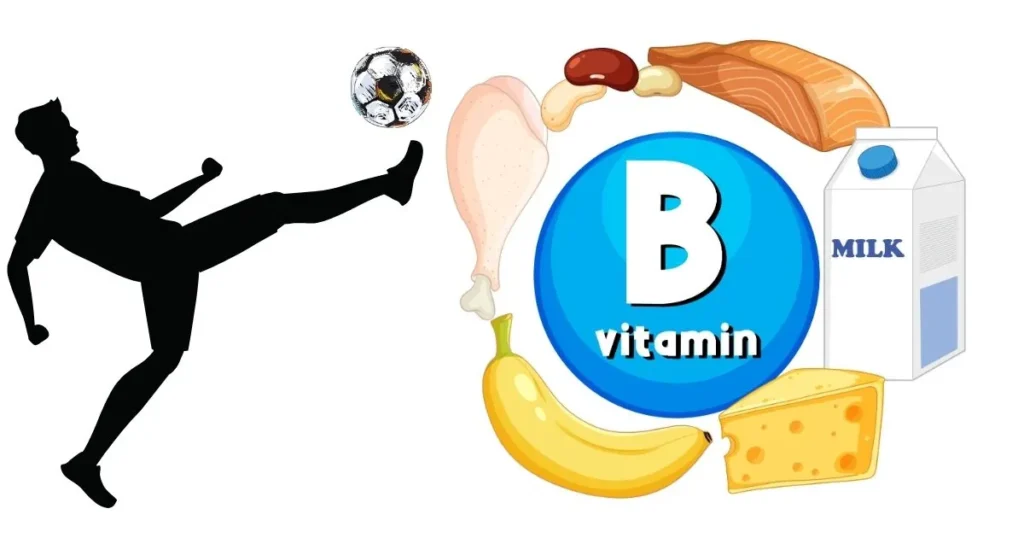
a. Overview of Different B Vitamins and Their Functions:
Vitamin B1 (Thiamine):
- Role: Thiamine aids in converting carbohydrates into energy, ensuring young athletes have the fuel necessary for endurance and performance. It also supports nerve function, facilitating efficient communication between muscles and the brain during activities.
- Sources: Whole grains, pork, nuts, and legumes are rich sources of Vitamin B1.
Vitamin B2 (Riboflavin):
- Role: Riboflavin contributes to energy production by metabolizing fats, proteins, and carbohydrates. Additionally, it promotes muscle repair and growth, aiding in recovery after strenuous workouts or competitions.
- Sources: Dairy products, lean meats, green leafy vegetables, and almonds are good sources of Vitamin B2.
Vitamin B3 (Niacin):
- Role: Niacin plays a vital role in energy metabolism, helping young athletes extract energy from food sources to fuel their activities. It also supports proper nerve function, ensuring optimal coordination and muscle control during physical exertion.
- Sources: Poultry, fish, nuts, whole grains, and legumes are rich sources of Vitamin B3.
Vitamin B5 (Pantothenic Acid):
- Role: Pantothenic Acid is involved in synthesizing Coenzyme A, which is essential for energy metabolism. By supporting the breakdown of carbohydrates, fats, and proteins, it provides young athletes with the sustained energy needed for endurance activities.
- Sources: Eggs, avocados, poultry, whole grains, and mushrooms are sources of Vitamin B5.
Vitamin B6 (Pyridoxine):
- Role: Pyridoxine supports protein metabolism, aiding in muscle repair and recovery after intense exercise. It also contributes to neurotransmitter synthesis, promoting mental focus and concentration during training and competition.
- Sources: Chickpeas, salmon, potatoes, bananas, and fortified cereals are good sources of Vitamin B6.
Vitamin B7 (Biotin):
- Role: Biotin participates in energy metabolism, assisting in the conversion of macronutrients into usable energy units. Additionally, it supports the health of hair, skin, and nails, important for young athletes’ overall well-being.
- Sources: Egg yolks, nuts, seeds, salmon, and sweet potatoes are rich sources of Vitamin B7.
Vitamin B9 (Folate):
- Role: Folate is crucial for DNA synthesis and cell division, supporting the growth and repair of muscle tissue in young athletes. It also plays a role in red blood cell formation, ensuring optimal oxygen delivery to muscles during exercise.
- Sources: Leafy greens, citrus fruits, beans, lentils, and fortified grains are excellent sources of Vitamin B9.
Vitamin B12 (Cobalamin):
- Role: Cobalamin is essential for red blood cell production and oxygen transport, vital for young athletes’ endurance and stamina. It also supports nerve function, promoting efficient muscle contractions and coordination.
- Sources: Animal products such as meat, fish, eggs, and dairy are the primary sources of Vitamin B12.
b. Supporting Energy Metabolism and Nerve Function:
In the context of young male athletes, the Vitamin B complex plays a central role in supporting energy metabolism and nerve function to optimize athletic performance. By ensuring efficient conversion of nutrients into energy and facilitating smooth communication between nerves and muscles, B vitamins enable young athletes to sustain high levels of physical activity, recover effectively, and achieve their athletic goals.
Incorporating B vitamin-rich foods such as whole grains, lean meats, dairy products, fruits, and vegetables into their diets can help young male athletes meet their nutritional needs and maintain peak performance levels. Additionally, supplementation may be considered under the guidance of a healthcare professional to address any deficiencies and ensure adequate intake of these essential nutrients.
By prioritizing the consumption of B vitamins, young male athletes can enhance their energy levels, support muscle function, and optimize their overall athletic performance, paving the way for success in their chosen sports and activities.
Read More: What is Oatzempic? Is Tiktok Oatzempic Weight Loss Drink Helps?
3. Vitamin C: Strengthening Immunity and Collagen Formation for Young Male Athletes
In the realm of optimizing health and performance, young male athletes recognize the pivotal role that Vitamin C plays in bolstering immunity and promoting joint health. Let’s delve into how Vitamin C, known for its immune-boosting properties and its significance in collagen formation, is indispensable for the well-being and athletic endeavors of these individuals.

a. Immune-Boosting Properties of Vitamin C:
- Enhanced Immune Response: For young male athletes pushing their limits in rigorous training sessions and competitions, maintaining a robust immune system is imperative to ward off illnesses that could derail their progress. Vitamin C acts as a potent antioxidant, scavenging harmful free radicals and bolstering the body’s defenses against pathogens.
- Reduced Risk of Infections: Intense physical activity can temporarily suppress the immune system, making athletes more susceptible to infections. By incorporating Vitamin C-rich foods such as citrus fruits, berries, and leafy greens into their diets, young male athletes can bolster their immune response, reducing the likelihood of falling ill and experiencing disruptions in their training schedules.
- Faster Recovery: In the event of illness or injury, Vitamin C plays a crucial role in supporting the body’s healing processes. It aids in the production of collagen, a protein essential for tissue repair and regeneration. By accelerating recovery times, Vitamin C enables young athletes to bounce back quickly and resume their training routines with minimal setbacks.
b. Importance of Collagen for Joint Health:
- Joint Support: Young male athletes subject their joints to significant stress and strain during training and competition, increasing their risk of injury and overuse issues. Collagen, the most abundant protein in the body, forms the structural framework of connective tissues, including tendons, ligaments, and cartilage, which support and cushion the joints.
- Enhanced Flexibility and Mobility: By promoting collagen synthesis, Vitamin C contributes to the maintenance of healthy joints, ensuring optimal flexibility and mobility. This is particularly crucial for athletes engaged in activities that require agility, speed, and range of motion, such as running, jumping, and weightlifting.
- Injury Prevention: Weak or damaged connective tissues can predispose young male athletes to injuries such as sprains, strains, and tendonitis. By fortifying the structural integrity of these tissues, Vitamin C helps mitigate the risk of such injuries, allowing athletes to perform at their best while minimizing downtime due to rehabilitation.
Incorporating Vitamin C-rich foods and supplements into their daily regimen empowers young male athletes to fortify their immune systems, expedite recovery from physical exertion, and safeguard their joint health. By recognizing the pivotal role of Vitamin C in maintaining overall well-being and supporting their athletic pursuits, these individuals can strive towards their performance goals with confidence and resilience.
4. Vitamin D: Regulating Calcium and Supporting Bone Health for Young Male Athletes
In the realm of sports and physical performance, young male athletes understand the critical role that Vitamin D plays in regulating calcium absorption and promoting bone health. Let’s explore how Vitamin D facilitates calcium absorption and its impact on bone strength and muscle function, crucial aspects for the athletic endeavors of these individuals.
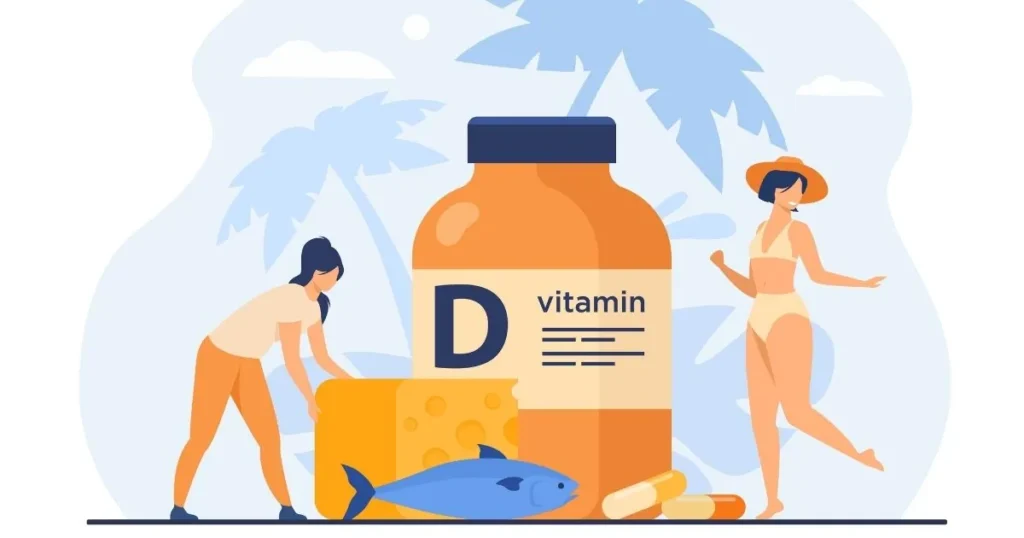
a. Role of Vitamin D in Calcium Absorption:
- Calcium Absorption Facilitation: Vitamin D acts as a key regulator of calcium metabolism in the body. Specifically, it enhances the absorption of calcium from the intestines into the bloodstream, ensuring that an adequate amount of this essential mineral is available for various physiological processes.
- Maintenance of Calcium Homeostasis: Calcium is vital for numerous bodily functions, including muscle contraction, nerve signaling, and bone formation. Vitamin D ensures that calcium levels are maintained within the optimal range, preventing deficiencies that could compromise athletic performance and overall health.
- Promotion of Bone Mineralization: Vitamin D collaborates with parathyroid hormone (PTH) to regulate calcium levels in the blood. When calcium levels are low, PTH stimulates the activation of Vitamin D, which, in turn, promotes the absorption of dietary calcium and facilitates its deposition into bones, contributing to bone mineralization and density.
b. Impact on Bone Strength and Muscle Function:
- Optimal Bone Density: Young male athletes subject their bones to repetitive stress and loading during training and physical activity. Adequate Vitamin D levels are essential for maintaining optimal bone density and integrity, reducing the risk of stress fractures and other skeletal injuries commonly encountered in sports.
- Muscle Function Optimization: Beyond its role in bone health, Vitamin D influences muscle function and performance. Vitamin D receptors are present in skeletal muscle tissue, indicating its direct involvement in muscle metabolism, contraction, and strength. Optimal Vitamin D levels are associated with improved muscle function, coordination, and athletic performance.
- Prevention of Muscle Weakness: Deficiencies in Vitamin D have been linked to muscle weakness, fatigue, and compromised athletic performance. By ensuring sufficient Vitamin D intake, young male athletes can mitigate the risk of muscle weakness and enhance their capacity for power, endurance, and recovery during training and competition.
Incorporating Vitamin D-rich foods such as fatty fish, fortified dairy products, and sunlight exposure into their lifestyles empowers young male athletes to optimize calcium absorption, promote bone health, and enhance muscle function. By prioritizing Vitamin D intake and maintaining adequate levels of this essential nutrient, these individuals can safeguard their skeletal integrity, support their athletic pursuits, and perform at their peak potential.
5. Vitamin E: Powerful Antioxidant Protection for Young Male Athletes
In the realm of athletic performance and overall health, young male athletes recognize the invaluable role of Vitamin E as a potent antioxidant that safeguards cells from oxidative damage. Let’s explore the antioxidant properties of Vitamin E and its crucial role in protecting cells from oxidative stress, an essential consideration for the well-being and performance optimization of these individuals.
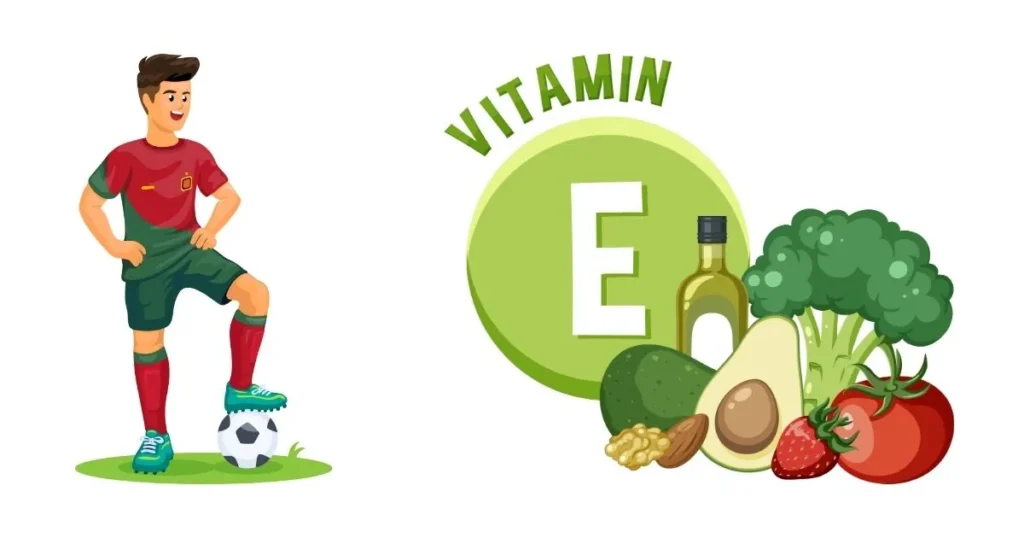
a. Antioxidant Properties of Vitamin E:
- Free Radical Scavenging: Vitamin E is renowned for its ability to neutralize harmful free radicals, and unstable molecules that can damage cells and contribute to various health issues, including inflammation, aging, and chronic diseases. As an antioxidant, Vitamin E acts as a scavenger, intercepting free radicals and preventing them from causing oxidative damage to cellular structures.
- Lipid Peroxidation Inhibition: Lipid peroxidation is a chain reaction that occurs when free radicals attack lipids (fats) in cell membranes, leading to cellular damage and dysfunction. Vitamin E, with its lipid-soluble properties, can penetrate cell membranes and interrupt the lipid peroxidation process, preserving membrane integrity and function.
- Synergistic Antioxidant Activity: Vitamin E works synergistically with other antioxidants, such as Vitamin C, glutathione, and selenium, to enhance cellular defense mechanisms against oxidative stress. By regenerating oxidized antioxidants and modulating redox signaling pathways, Vitamin E contributes to a comprehensive antioxidant network that combats oxidative damage at multiple levels.
b. Protecting Cells from Oxidative Damage:
- Preservation of Cellular Integrity: Young male athletes subject their bodies to oxidative stress during intense physical exertion and metabolic activity. Vitamin E acts as a shield, protecting cells from oxidative damage induced by exercise-induced free radicals, thereby preserving cellular integrity and function.
- Support for Muscle Recovery: Exercise-induced oxidative stress can lead to muscle damage and inflammation, impairing recovery and performance. By mitigating oxidative damage, Vitamin E supports muscle recovery processes, reducing post-exercise soreness and promoting faster restoration of muscle function.
- Enhanced Immune Function: Oxidative stress can compromise immune function, leaving athletes susceptible to infections and illnesses that can disrupt training schedules. Vitamin E bolsters immune defenses by neutralizing free radicals and supporting the function of immune cells, ensuring young male athletes can maintain their training regimens and competitive edge.
Incorporating Vitamin E-rich foods such as nuts, seeds, vegetable oils, and leafy greens into their diets empowers young male athletes to harness the antioxidant power of Vitamin E and protect their cells from oxidative damage. By prioritizing Vitamin E intake and maintaining optimal antioxidant status, these individuals can optimize their resilience to oxidative stress, support their athletic endeavors, and safeguard their long-term health and well-being.
6. Vitamin K: Essential for Young Male Athletes’ Blood Clotting and Bone Health
As a young male athlete, I understand the crucial role that Vitamin K plays in my body, particularly in ensuring proper blood clotting and maintaining strong, healthy bones. Let’s explore how Vitamin K helps me in clotting my blood and keeping my bones strong and dense, two vital aspects for my performance and well-being.

a. Blood Clotting Functions of Vitamin K:
- Keeping My Blood in Check: Vitamin K is like a behind-the-scenes hero when it comes to stopping bleeding when I get injured. It helps in making certain proteins called clotting factors, which are like the building blocks of blood clots. Without Vitamin K, my blood wouldn’t clot properly, and even a small cut could lead to a lot of bleeding.
- Speeding Up the Healing Process: When I get a cut or scrape during training or a game, Vitamin K helps convert inactive proteins into active ones that form the clot to stop bleeding. This process happens quickly, thanks to Vitamin K, allowing my body to start healing and getting me back into action sooner.
b. Contribution to Bone Metabolism and Density:
- Building Strong Bones: Vitamin K isn’t just about stopping bleeding; it also helps keep my bones strong and resilient. It activates a protein called osteocalcin, which helps to bind calcium and other minerals to my bones, making them sturdy and less prone to fractures or injuries, which is crucial for me as an athlete.
- Supporting Bone Health: With all the jumping, running, and lifting I do during training and games, my bones undergo a lot of stress. Vitamin K helps regulate the constant process of bone remodeling, ensuring that my bones stay healthy and capable of handling the demands of my sport without breaking or becoming weak.
Incorporating Vitamin K-rich foods like leafy greens, broccoli, and eggs into my diet is essential for ensuring that I have enough of this vital nutrient to support my blood clotting and bone health. By taking care of my Vitamin K intake, I can feel confident knowing that my body is equipped to handle the physical challenges of my athletic pursuits and keep me performing at my best.
7. Iron: Vital for Oxygen Transport and Energy Production for Young Male Athletes
As young male athletes striving for peak performance, we recognize the essential role that vitamins and minerals play in fueling our bodies and maximizing our athletic potential. Among these, iron stands out as a vital nutrient crucial for oxygen transport and energy production. Let’s delve into how iron supports oxygen delivery to our muscles and helps prevent fatigue, enabling us to optimize our performance on and off the field.
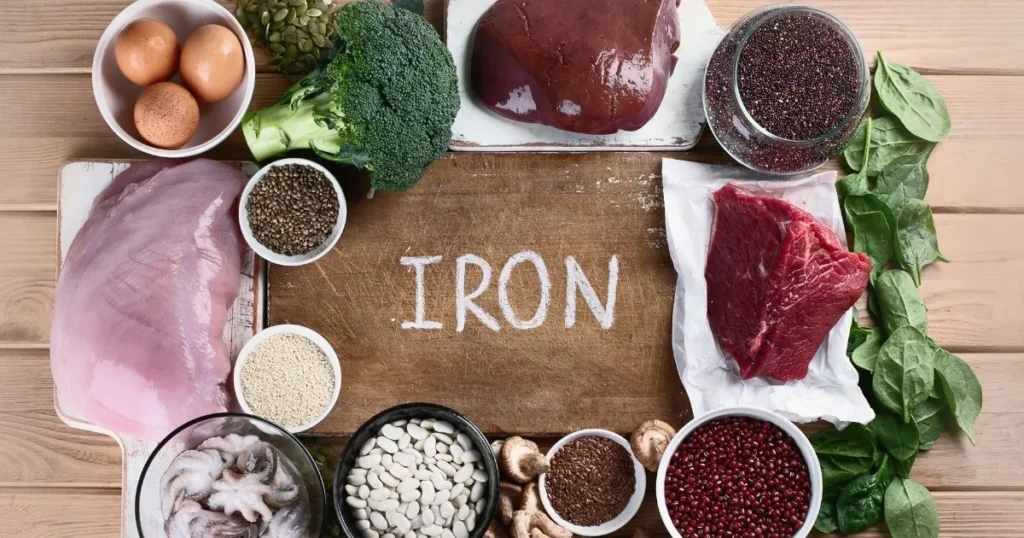
a. Importance of Iron for Oxygen Delivery to Muscles:
- Fueling Our Muscles: When we’re in the heat of competition or pushing ourselves during training sessions, our muscles need a constant supply of oxygen to perform at their best. Iron plays a fundamental role in the production of hemoglobin, the protein in red blood cells that binds to oxygen and transports it to our muscles, ensuring they have the oxygen they need to generate energy efficiently.
- Boosting Endurance: Endurance is key for us athletes, whether we’re running long distances, cycling uphill, or enduring grueling matches. Adequate iron levels are essential for maintaining optimal oxygen delivery to our muscles, allowing us to sustain our efforts for longer periods without experiencing fatigue or hitting a performance plateau.
b. Preventing Fatigue and Optimizing Performance:
- Sustaining Energy Levels: Fatigue can be our worst enemy on the field or court, hindering our speed, agility, and mental focus. Iron plays a crucial role in energy production, as it is a component of enzymes involved in the metabolism of carbohydrates, fats, and proteins, the primary sources of fuel for our muscles. By ensuring adequate iron intake, we can sustain our energy levels throughout training and competition, maintaining our competitive edge.
- Enhancing Recovery: Training sessions and competitions can take a toll on our bodies, leading to muscle fatigue and soreness. Iron supports the formation of myoglobin, a protein in muscle cells that stores oxygen for use during exercise and facilitates muscle recovery after exertion. By promoting efficient oxygen utilization and recovery processes, iron helps us bounce back faster and stay ready for the next challenge.
Incorporating iron-rich foods such as lean meats, poultry, fish, beans, and fortified cereals into our diets is essential for ensuring optimal oxygen transport and energy production. By prioritizing our intake of this vital mineral and maintaining healthy iron levels, we can prevent fatigue, enhance our endurance, and perform at our best, both on the field and in our everyday lives.
8. Magnesium: Muscle Relaxation and Energy Metabolism
As young male athletes striving for peak performance, we understand the importance of proper nutrition in supporting our athletic endeavors. Among the essential nutrients, magnesium stands out for its crucial role in muscle function, relaxation, and energy metabolism. Let’s explore how magnesium contributes to muscle health and energy production, helping us perform at our best while reducing the risk of cramps and fatigue.
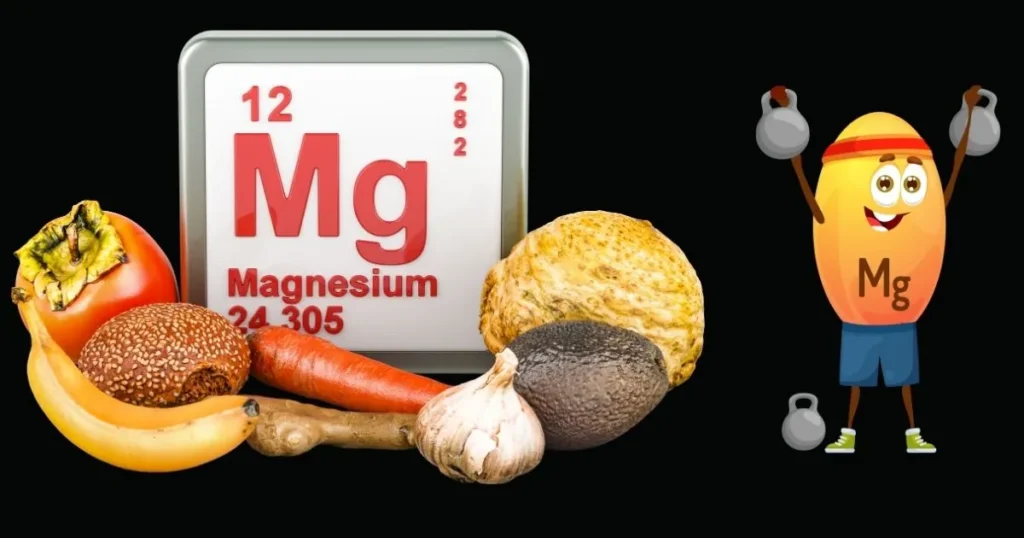
a. Role of Magnesium in Muscle Function and Relaxation:
- Muscle Contraction and Relaxation: Magnesium is involved in regulating muscle contractions by acting as a cofactor for enzymes that control the movement of calcium ions in and out of muscle cells. This process is essential for the initiation and relaxation of muscle contractions, allowing us to move efficiently and perform athletic movements with precision.
- Preventing Muscle Cramps: Adequate magnesium levels are crucial for preventing muscle cramps, spasms, and stiffness, which can occur during intense physical activity. Magnesium helps maintain the balance of electrolytes within muscle cells, ensuring proper muscle function and reducing the likelihood of cramping during training and competition.
b. Supporting Energy Production and Reducing Fatigue:
- Energy Metabolism: Magnesium plays a vital role in energy metabolism, as it is involved in the production and utilization of adenosine triphosphate (ATP), the primary energy currency of our cells. Magnesium acts as a cofactor for enzymes involved in ATP synthesis, ensuring efficient energy production from carbohydrates, fats, and proteins, which fuels our athletic performance.
- Reducing Fatigue: Fatigue can hinder our athletic performance and limit our ability to train at our best. Magnesium supports energy production pathways, helping to reduce fatigue and enhance endurance during prolonged physical exertion. By optimizing energy metabolism, magnesium enables us to sustain our efforts and push through challenging workouts or competitions without experiencing excessive fatigue.
Incorporating magnesium-rich foods such as leafy greens, nuts, seeds, whole grains, and legumes into our diets is essential for ensuring adequate magnesium intake and supporting our athletic performance. Additionally, magnesium supplements may be beneficial for athletes with increased magnesium needs due to intense training regimens or inadequate dietary intake. By prioritizing our magnesium intake and maintaining optimal levels of this essential mineral, we can support muscle health, energy production, and overall athletic performance, enabling us to reach our full potential on and off the field.
9. Zinc: Supporting Immune Function and Testosterone Levels
As young male athletes dedicated to reaching our peak performance, we understand the significance of proper nutrition in optimizing our health and athletic capabilities. Among the essential nutrients, zinc stands out for its pivotal role in supporting immune function and testosterone levels. Let’s delve into how zinc enhances our immune response and influences testosterone production and muscle growth, vital aspects for our overall well-being and athletic performance.
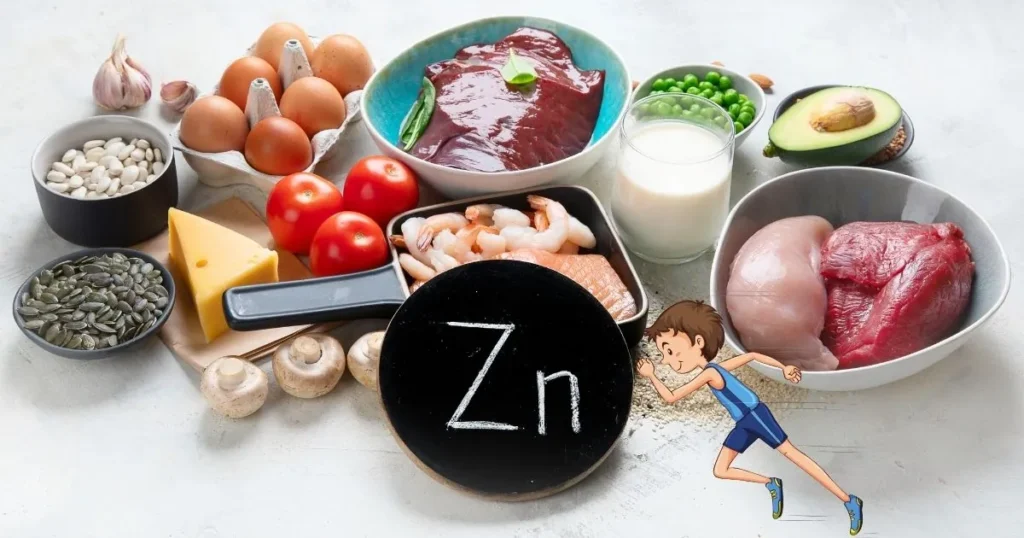
a. Enhancing Immune Response with Zinc:
- Immune System Support: Zinc plays a crucial role in bolstering our immune system, acting as a cofactor for various enzymes involved in immune function. It helps regulate immune cell development, function, and communication, enabling our bodies to mount a robust defense against pathogens such as bacteria and viruses.
- Fighting Infections: Adequate zinc levels are essential for maintaining the integrity of our skin and mucous membranes, our first line of defense against invading pathogens. Zinc supports the production and activity of white blood cells, including neutrophils and natural killer cells, which play key roles in identifying and eliminating harmful microbes.
b. Impact on Testosterone Production and Muscle Growth:
- Testosterone Regulation: Testosterone is a hormone crucial for male athletes, as it influences muscle growth, strength, and recovery. Zinc is involved in the synthesis and regulation of testosterone, supporting healthy testosterone levels essential for optimizing our athletic performance and physique.
- Muscle Growth Support: Zinc promotes muscle growth and repair by facilitating protein synthesis, the process by which our bodies build and repair muscle tissue in response to exercise-induced damage. By ensuring adequate zinc intake, we can enhance muscle protein synthesis, leading to greater gains in muscle mass, strength, and athletic performance.
Incorporating zinc-rich foods such as lean meats, seafood, nuts, seeds, and whole grains into our diets is essential for ensuring optimal zinc intake and supporting our immune function, testosterone levels, and muscle growth. Additionally, zinc supplementation may be beneficial for athletes with increased zinc needs due to intense training regimens or inadequate dietary intake. By prioritizing our zinc intake and maintaining optimal levels of this essential mineral, we can fortify our immune systems, support our hormonal balance, and maximize our athletic potential both on and off the field.
10. Omega-3 Fatty Acids: Reducing Inflammation and Supporting Heart Health
For young male athletes like us, achieving peak performance isn’t just about training hard; it’s also about nourishing our bodies with the right nutrients. Among these, omega-3 fatty acids stand out for their remarkable ability to reduce inflammation and support heart health. Let’s explore how omega-3s provide anti-inflammatory benefits and maintain cardiovascular health, essential for optimizing our athletic performance and overall well-being.

a. Anti-inflammatory Benefits of Omega-3s:
- Combatting Inflammation: Inflammation is a natural response that occurs in our bodies, especially after intense physical activity. However, chronic inflammation can impair recovery and hinder performance. Omega-3 fatty acids, particularly EPA (eicosapentaenoic acid) and DHA (docosahexaenoic acid), exert potent anti-inflammatory effects, helping to reduce inflammation and promote faster recovery after workouts or competitions.
- Supporting Joint Health: Intense training can put a strain on our joints, leading to inflammation and discomfort. Omega-3 fatty acids have been shown to alleviate joint pain and stiffness by reducing inflammation in the joints. By supporting joint health, omega-3s enable us to move more freely and perform at our best without being hindered by discomfort or stiffness.
b. Maintaining Cardiovascular Health for Optimal Performance:
- Protecting Heart Health: Our cardiovascular system plays a vital role in delivering oxygen and nutrients to our muscles during exercise. Omega-3 fatty acids help maintain cardiovascular health by reducing triglyceride levels, lowering blood pressure, and preventing the formation of blood clots. By supporting heart health, omega-3s ensure efficient blood flow and oxygen delivery to our muscles, enhancing our endurance and performance.
- Enhancing Blood Flow: Omega-3 fatty acids improve blood flow by dilating blood vessels and reducing the risk of arterial plaque buildup. This enhanced blood flow delivers more oxygen and nutrients to our muscles, enabling us to perform at higher intensities for longer durations without experiencing fatigue or reduced performance.
Incorporating omega-3-rich foods such as fatty fish (salmon, mackerel, sardines), flaxseeds, chia seeds, and walnuts into our diets is essential for ensuring adequate omega-3 intake and reaping the anti-inflammatory and cardiovascular benefits.
Additionally, omega-3 supplements may be considered to complement our dietary intake, particularly for athletes with higher omega-3 needs due to intense training regimens. By prioritizing our omega-3 intake and maintaining cardiovascular health, we can optimize our athletic performance, recover faster, and stay at the top of our game for years to come.
11. Protein: Building Blocks for Muscle Repair and Growth
For young male athletes like us, achieving our performance goals goes hand in hand with understanding the vital role of protein in our diets. Protein serves as the building blocks for muscle repair and growth, essential components for optimizing our athletic performance and recovery. Let’s delve into the essential role of protein in muscle recovery and how we can ensure we’re meeting our protein needs to support our athletic endeavors.

a. Essential Role of Protein in Muscle Recovery:
- Repairing Microscopic Muscle Damage: During intense physical activity, our muscles undergo microscopic damage, leading to soreness and fatigue. Protein plays a crucial role in repairing this damage, providing the amino acids necessary for rebuilding and strengthening muscle fibers. By consuming adequate protein post-workout, we can accelerate the muscle repair process and minimize recovery time, allowing us to get back to training at full capacity sooner.
- Promoting Muscle Growth: In addition to repairing damaged muscle tissue, protein also stimulates muscle protein synthesis, the process by which new muscle fibers are formed. By providing our muscles with the necessary building blocks, protein supports muscle growth and hypertrophy, helping us develop strength, power, and endurance essential for athletic performance.
b. Meeting Protein Needs for Young Male Athletes:
- Determining Protein Requirements: As young male athletes, our protein needs may vary depending on factors such as our age, weight, training intensity, and athletic goals. While general recommendations suggest consuming around 0.8 to 1.2 grams of protein per kilogram of body weight per day, athletes engaging in intense training may benefit from higher protein intake to support muscle repair and growth.
- Choosing High-Quality Protein Sources: To meet our protein needs, we should prioritize consuming high-quality protein sources such as lean meats, poultry, fish, eggs, dairy products, legumes, and tofu. These sources provide all the essential amino acids our bodies need for muscle repair and growth, ensuring we’re getting the most out of our protein intake.
- Timing Protein Intake: Consuming protein-rich foods or supplements within the post-workout window, typically within 30 minutes to two hours after exercise, can maximize muscle protein synthesis and enhance recovery. Additionally, spreading protein intake evenly throughout the day, including at meals and snacks, ensures a steady supply of amino acids for ongoing muscle repair and growth.
By understanding the essential role of protein in muscle recovery and growth and prioritizing our protein intake from high-quality sources, we can support our athletic endeavors and achieve our performance goals. Whether it’s repairing damaged muscle tissue, promoting muscle growth, or enhancing recovery, protein serves as the foundation for our athletic success.
12. Calcium: Essential for Bone Health and Muscle Contraction
For young male athletes like us, understanding the importance of calcium in our diets goes beyond just building strong bones. Calcium plays a crucial role in maintaining bone health and supporting muscle contraction and nerve transmission, two essential functions for optimizing our athletic performance and overall well-being. Let’s explore why calcium is essential for bone density and how it supports muscle function and nerve transmission.
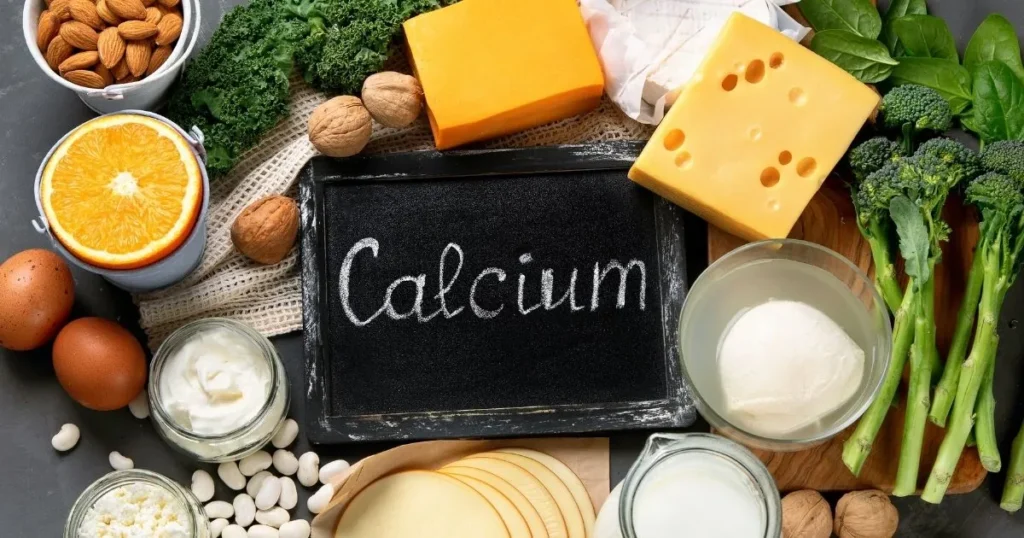
a. Importance of Calcium in Bone Density:
- Building Strong Bones: Calcium is a key component of our bones, providing the structural framework that supports our bodies and withstands the stresses of physical activity. Adequate calcium intake during adolescence and young adulthood is crucial for achieving optimal peak bone mass, which lays the foundation for lifelong bone health and reduces the risk of osteoporosis later in life.
- Preventing Bone Loss: As young male athletes, our bones undergo constant remodeling in response to mechanical stress and hormonal changes. Calcium plays a vital role in this remodeling process, ensuring that old bone tissue is replaced with new, healthy bone. By maintaining adequate calcium levels, we can prevent excessive bone loss and maintain strong, resilient bones capable of withstanding the demands of our athletic pursuits.
b. Supporting Muscle Contraction and Nerve Transmission:
- Muscle Contraction: Calcium is essential for muscle contraction, the process by which muscle fibers generate force and movement. When a nerve signal triggers a muscle to contract, calcium ions are released from storage sites within the muscle cells, initiating a series of biochemical reactions that ultimately lead to muscle fiber shortening and contraction. Without adequate calcium, muscle contraction would be impaired, compromising our athletic performance and agility.
- Nerve Transmission: Calcium also plays a critical role in nerve transmission, allowing nerve cells to communicate with each other and with muscles. When a nerve signal reaches the end of a nerve cell, calcium ions enter the cell, triggering the release of neurotransmitters that relay the signal to adjacent nerve cells or muscle fibers. This process is essential for coordinating muscle movements and ensuring smooth, precise athletic performance.
Incorporating calcium-rich foods such as dairy products, leafy greens, fortified cereals, and tofu into our diets is essential for ensuring adequate calcium intake and supporting our bone health, muscle function, and nerve transmission. Additionally, calcium supplements may be considered for athletes with increased calcium needs due to intense training regimens or inadequate dietary intake. By prioritizing our calcium intake and maintaining optimal levels of this essential mineral, we can build strong bones, support muscle function, and perform at our best, both on and off the field.
13. Hydration: Key for Optimal Athletic Performance
For young male athletes like us, staying properly hydrated isn’t just a matter of quenching our thirst—it’s essential for achieving peak performance and maintaining our overall well-being. Hydration plays a critical role in ensuring that our bodies function optimally during training and competition, impacting everything from our energy levels to our cognitive function. Let’s explore why maintaining proper hydration levels is crucial and how it influences our athletic performance.

a. Maintaining Proper Hydration Levels During Training and Competition:
- Regulating Body Temperature: Sweating is our body’s natural mechanism for regulating temperature during exercise. However, excessive sweating can lead to fluid loss and dehydration if not replenished adequately. Proper hydration ensures that we maintain a healthy balance of fluids, allowing us to regulate our body temperature effectively and prevent overheating during intense physical activity.
- Supporting Nutrient Transport: Water serves as a vehicle for transporting nutrients, electrolytes, and oxygen to our muscles and cells, fueling our performance and recovery. Adequate hydration ensures that nutrients are delivered efficiently to where they’re needed most, optimizing our athletic performance and enabling us to push ourselves to the limit.
b. Impact on Energy Levels and Cognitive Function:
- Sustaining Energy: Dehydration can have a significant impact on our energy levels and endurance during exercise. Even mild dehydration can lead to decreased stamina, increased fatigue, and impaired performance. By staying properly hydrated, we ensure that our bodies have the fuel they need to sustain our efforts and perform at our best for the duration of our training sessions or competitions.
- Preserving Cognitive Function: Hydration isn’t just important for our bodies—it’s crucial for our minds as well. Studies have shown that dehydration can impair cognitive function, including concentration, decision-making, and reaction time. As athletes, maintaining mental sharpness is essential for making split-second decisions and executing precise movements, making hydration an integral part of our overall performance strategy.
Incorporating proper hydration practices, such as drinking fluids before, during, and after exercise, monitoring urine color for hydration status, and consuming electrolyte-rich beverages for prolonged or intense activities, is essential for young male athletes. By prioritizing hydration and ensuring that our bodies are adequately fueled with fluids, we can optimize our athletic performance, enhance our endurance, and maintain peak cognitive function, allowing us to excel in our chosen sports and activities.
14. Conclusion
In summary, the significance of prioritizing the intake of the best vitamins for young male athletes cannot be emphasized enough. These essential nutrients are the cornerstone of our athletic performance, aiding in muscle repair, immune function, energy production, and overall well-being. From Vitamin A to Zinc, each plays a vital role in optimizing our training regimen, ensuring we can train harder, recover faster, and excel in our respective sports.
As young male athletes, it’s paramount that we elevate nutrition to the forefront of our priorities. By fueling our bodies with a diverse array of nutrient-rich foods, including the best vitamins for young male athletes, we lay the foundation for peak performance. Let’s embrace a balanced diet comprising vitamins, minerals, protein, carbohydrates, and healthy fats to unlock our full athletic potential.
Moreover, maintaining adequate hydration and adopting a holistic approach to wellness are equally vital components of our athletic journey. By nurturing our bodies and minds through proper nutrition, hydration, and lifestyle choices, we empower ourselves to conquer challenges and surpass our athletic goals.
In essence, by recognizing the critical role of the best vitamins for young male athletes and integrating them into our dietary habits, we pave the way for sustained success and longevity in our athletic endeavors. Let’s commit to fueling our bodies with the nutrients they need to thrive, ensuring we perform at our peak and seize every opportunity to shine on the field, track, or court.


